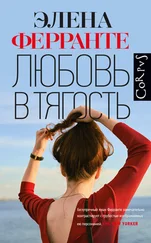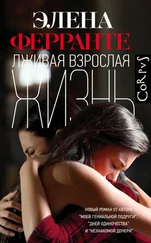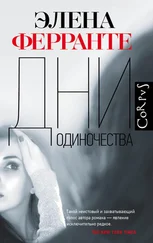“Who told you?”
Angela hesitated, she already seemed sorry for having given in to the impulse to humiliate me. She muttered:
“You told Corrado and Corrado told Tonino.”
Ida wanted to console me.
“But we didn’t tell anyone,” she said and tried to caress me on the cheek. I pulled away, hissed:
“Only bitches like you study like parrots, get promoted, and are respected by their boyfriends. I don’t study, I get flunked, and I’m a whore.”
8.
It was dark when my father arrived. Costanza seemed irritated, she said to him: why are you so late, you knew Giovanna was here. We had dinner, and he pretended he was happy. I knew him well, he was pretending a cheerfulness he didn’t feel. I hoped that in the past, when he lived with my mother and me, he had never faked it as he was obviously faking it that evening.
I did nothing to hide the fact that I was angry, that Costanza annoyed me with her sweet attentions, that Angela had insulted me and I didn’t want to have anything to do with her, that I couldn’t stand the many displays of affection with which Ida tried to placate me. I felt a meanness inside that needed to be expressed at all costs: surely it’s in my eyes and my whole face, I thought, alarmed at myself. I went so far as to whisper to Ida: it’s your birthday and Mariano’s not here, there must be a reason, maybe you’re too whiny, maybe you’re too clingy. Ida stopped speaking to me, her lower lip trembled, as if I had slapped her.
This couldn’t go unnoticed. My father realized that I had said something mean to Ida and, interrupting some polite chat with Angela, he turned to me, reproachful: please, Giovanna, don’t be rude, stop it. I said nothing, I smiled in a way that irritated him even more, so that he added forcefully: do we understand each other? I nodded yes, careful not to laugh. I waited a while and said, my face burning red: I’m going to the bathroom.
I locked myself in, and washed my face in a frenzy to remove that burning anger. He thinks he can hurt me, but I can do that, too. Before I went back to the dining room, I made up my eyes again as Costanza had done after her tears, I fished the bracelet out of my pocket and put it on my wrist, and returned to the table. Angela widened her eyes in wonder, she said:
“Why do you have Mamma’s bracelet?”
“She gave it to me.”
She turned to Costanza:
“Why did you give it to her, I wanted it.”
“I liked it, too,” Ida murmured.
My father intervened, ashen:
“Giovanna, give back the bracelet.”
Costanza shook her head, she, too, seemed suddenly drained.
“No, the bracelet is Giovanna’s, I gave it to her.”
“Why?” Ida asked.
“Because she’s a good, studious girl.”
I looked at Angela and Ida, they were unhappy. My sense of revenge faded, their unhappiness made me unhappy. Everything was sad and bleak, there was nothing, nothing at all that I could be pleased about, the way I’d been as a child, when they, too, were children. But now—I gave a start—they’re so wounded, so distressed, that to make themselves feel better they’ll say they know a secret of mine, they’ll say that I was held back, that I don’t learn, that I’m stupid by nature, I have only bad qualities, I don’t deserve the bracelet. I said to Costanza, in a rush:
“I’m not good or studious. Last year I was failed, now I’m repeating.”
Costanza looked uncertainly at my father, he coughed faintly, said reluctantly but making light of it, as if to curb an exaggeration:
“It’s true, but this year she’s doing really well and she’ll probably do two years in one. Come on, Giovanna, give the bracelet to Angela and Ida.”
I said:
“The bracelet is my grandmother’s, I can’t give it to strangers.”
My father then dug up from the depths of his throat his terrible voice, the one full of ice and disdain:
“I know damn well who that bracelet belongs to, take it off immediately.”
I tore it off my wrist and hurled it at one of the kitchen cabinets.
9.
My father drove me home. I left the Posillipo apartment unexpectedly victorious, but exhausted by tension. In my backpack I carried the bracelet and a piece of cake for my mother. Costanza got angry with my father, she had gone to pick the bracelet up off the floor. After making sure that it wasn’t broken, she repeated, articulating her words, without taking her eyes off his, that the bracelet was irrevocably mine and she didn’t want any more discussion. So in an atmosphere where it was no longer possible even to feign good cheer, Ida had blown out her candles, the party had ended, Costanza had ordered me to take some cake to her former friend—this is for Nella—and Angela, depressed, had cut a big piece and diligently wrapped it. Now my father was driving to the Vomero, but he was upset, I’d never seen him like that. His features were very different from the ones I was used to, his eyes were very clear, the skin of his face stretched over the bones, and he uttered a confusion of words, twisting his mouth as if he couldn’t articulate them except with extreme effort.
He began with phrases of this type: I understand, you think I destroyed your mother’s life and now you want to get revenge by destroying mine, Costanza’s, Angela’s, and Ida’s. The tone appeared good-natured, but I felt all his tension and was frightened, I was afraid that at any moment he would hit me, that we would end up crashing into a wall or another car. He noticed, he muttered: you’re afraid of me, I lied, I said no, I exclaimed that it wasn’t true, I didn’t want to ruin him, I loved him. But he insisted, he poured out a river of words, dumped them on me. You’re afraid of me, he said, I don’t seem what I was, and maybe you’re right, maybe every so often I become the person I never wanted to be, I’m sorry if I frighten you, give me time, you’ll see, I’ll go back to being the way you know me, this is a difficult period, everything’s falling apart, I had an idea that it would turn out this way, and you mustn’t apologize if you have bad feelings, it’s normal, but don’t forget that you’re my only daughter, you’ll always be my only daughter, and your mother, I’ll always love her, you can’t understand now, but you will, it’s hard, I was faithful to your mother for a long time, but I’ve loved Costanza since before you were born, and yet between us there was never anything, I thought of her as the sister I would have liked to have, the opposite of your aunt, the exact opposite, intelligent, cultured, sensitive, for me she was my sister the way Mariano was my brother, a brother to study with, talk to, confide in, and I knew everything about Mariano, he has always betrayed Costanza, now you’re old enough, I can tell you these things, Mariano had other women and he liked telling me all his affairs, and I thought poor Costanza, I felt sorry for her, I would have liked to protect her from her own fiancé, from her own husband, I thought my involvement came from being like brother and sister, but instead once, by chance, yes, by chance, we went on a trip together, a work trip, a teacher thing, it was very important to her, it was important to me, too, but innocent, I swear to you I had never betrayed your mother—I’ve loved your mother since our school days and I love her now, too, I love you and her—but we had dinner, Costanza and I and a lot of other people, and we talked a lot, we talked in the restaurant, then on the street, then all night in my room, lying on the bed as we also used to do when Mariano and your mother were there, then we were four young people, we cuddled with each other and talked, you can understand, can’t you, the way you and Ida and Angela talk about everything, but now in the room it was only Costanza and me, and we discovered that ours wasn’t the love of brother and sister, it was another type of love, we were amazed ourselves, it’s impossible to know how and why these things happen, what the deep reasons are and the superficial ones, but don’t believe that we continued afterward, no, it was only an intense and inescapable feeling, I’m so sad, Giovanna, I’m sorry, I’m sorry also about the bracelet, I always considered it Costanza’s, I saw it and said to myself: you know how she’d like it, you know how beautiful it would look, that was why when my mother died I wanted it no matter what, I hit Vittoria because of her insistence that it was hers, and when you were born I said to her: give it to the child, and for once she listened to me, but I gave it right away to Costanza, the bracelet belonging to my mother who never loved me, never, maybe the good I wanted to do her did harm, I don’t know, we perform acts that seem like acts but in fact they’re symbols, you know what symbols are, that’s something I should explain to you, good becomes evil without your realizing it, you understand, I didn’t wrong you, you were a newborn, I would have wronged Costanza, in my mind I had already given her the bracelet long before.
Читать дальше
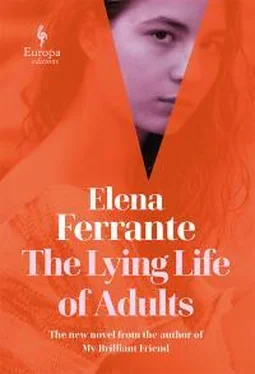
![Элена Ферранте - История о пропавшем ребенке [litres]](/books/32091/elena-ferrante-istoriya-o-propavshem-rebenke-litres-thumb.webp)
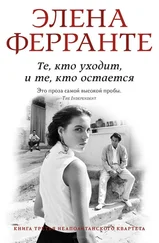
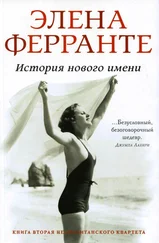
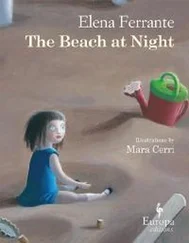
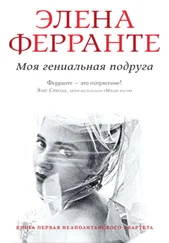
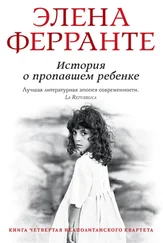
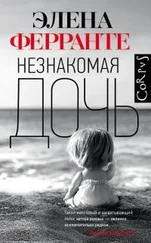
![Элена Ферранте - Дни одиночества [litres]](/books/404671/elena-ferrante-dni-odinochestva-litres-thumb.webp)
